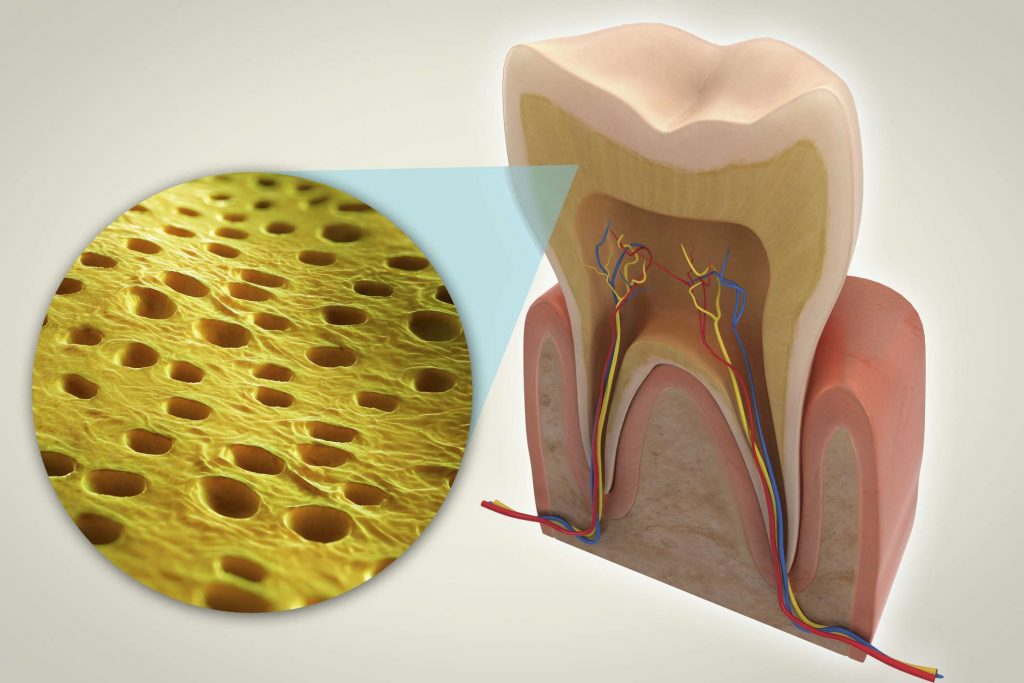Dentin is the technical name for your teeth — well, the substance that makes up your teeth, rather. Dentin is almost bone-like and it makes up most of the structure of your teeth. Dentin is made from cells called odontoblasts and is found under the enamel of the crown and under the cementum in the root.
Dentin is yellow in appearance; it’s the tooth’s enamel that gives teeth their bright white finish. Since enamel is relatively translucent, if not properly cared for by regular brushing, regular flossing and regular dental visits — your teeth can dull and become yellow as enamel starts to wear off. At that point, only the yellowish dentin is left.Structure
“Dentin consists of microscopic channels, called dentinal tubules, which radiate outward through the dentin from the pulp to the exterior cementum or enamel border.” This is all very technical for the biology of dentin, which is a very detailed and complicated process that occurs in the tiniest square footage — our individual teeth!
The highly specialized connective tissue of dentin makes up most of the structure of your teeth. If the inside (pulp chamber) gets infected and is removed by your dentist, dentin will become brittle and can fracture far more easily than normal. This is why, after a root canal, you are generally fitted with a cap or a dental crown.Facts of Dentin
Dentin is semi-reparable. It has reparative capabilities because the odontoblasts that create dentin remain viable after the teeth erupt. When excessive wear, cavities or other irritants start to degrade the dentin, reparative secondary dentin is laid down.
As helpful as this is, the enamel that covers dentin is NOT reparable, so again, your biyearly trip to the dentist is mandatory, as is daily brushing and flossing.
When you get dental cavities, you get them in dentin. Generally, if you get an infection, you get that in the pulp of the tooth. But enamel can wear away by chewing ice or other irritants, thereby making dentin more susceptible to dental cavities and tooth loss.
The most important thing you can do to protect your teeth’s dentin is to brush twice daily and floss every single night — not just when it occurs to you! And don’t forget to see your dentist twice a year to keep dentin in tip-top shape.

